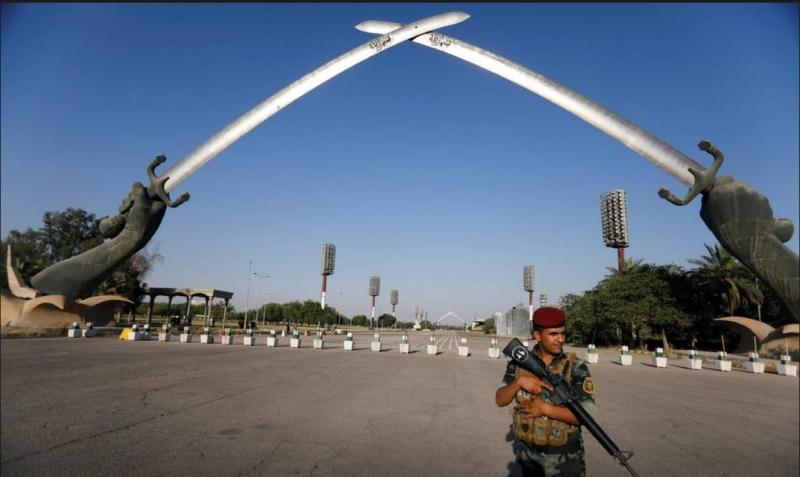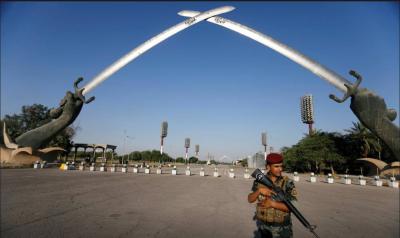We are currently commemorating the twentieth anniversary of the fall of the previous dictatorial regime, a period filled with pain and tragedies, alongside hopes for liberation from oppression and a move towards prosperity. The dramatic fall of the regime, which occurred around this time twenty years ago, was the result of decades of repression, tyranny, mismanagement, disregard for the country's resources, and the devaluation of the Iraqi people's dignity. It was a consequence of wild fantasies and attempts to violate and attack both internally and externally. The regime's downfall was an inevitable outcome of its management style and its failure to assess its own strength and the strength of its opponents.
Instead of the country embarking on a long-awaited renaissance, it fell into a series of events and problems commonly faced by nations emerging from an unruly authoritarian regime into a space of freedom and chaos that sometimes reached disorder. These circumstances consumed much time and dashed many hopes for freedom, salvation, and progress. It is time to heal wounds and move towards a bright future for a brave people who deserve every good.
Our people have endured much, sacrificed their most cherished possessions, and provided countless martyrs for the liberation and purification of both human and land from the filth of terrorism and tyranny. They managed to draft a constitution that placed the Iraqi person (man and woman) as its central focus and primary goal, ensuring rights to freedom, dignity, and equality. The constitution has paved the way for the establishment of an equal citizenship state, which should remain our collective goal despite the challenges we face. It also guaranteed the country's sovereignty, independence, and the preservation of its unity.
Our people await the renaissance that holds the necessary conditions to flourish within them. We are not lacking in human resources or scientific expertise. We have abundant natural and unnatural wealth, as well as fertile land and the timeless rivers, Tigris and Euphrates, alongside a geographic location that is among the most strategically significant in the world. All these elements have granted Iraq a special status throughout history, making it a beacon of science, literature, and knowledge for centuries, attracting scholars and students of knowledge from across the globe.
It is time to evoke these proud achievements to serve as a strong impetus for restoring Iraq's role as a leading country in the world. This is not merely wishful thinking; it must transform into a tangible reality, and our people are capable of that with God's help. What we need is to develop scientific plans and practical programs and to implement them rigorously across all fields.
Today we stand on the threshold of a new phase that we hope will herald good fortune and prosperity, and we are working diligently toward that. We have established a comprehensive program to address the most pressing problems and have acted from the very beginning to remove the obstacles hindering the country’s advancement. One of the main obstacles has been financial and administrative corruption. Therefore, we took the initiative from the first days to target and pursue it within a comprehensive plan that we will consistently continue, focusing on its centers and tools wherever they might be. Here, I look forward to the support of all good individuals within state institutions, as well as outside them, and all those who are keen to stand by the state and its sincere institutions in this fight that is as serious as the fight against terrorism.
We are determined to rebuild Iraq based on a clearly defined vision and a mapped-out roadmap that is structured around several phases. We have begun the first phase by mobilizing state energies towards construction, economic reform, and combating poverty, as detailed in our comprehensive governmental program where we identified priorities. The second phase focuses on economic, human, military, and security development.
Despite the major challenges we face both internally and externally, we possess the solid will to confront them. The trials and difficult circumstances faced by our people during this time have increased their awareness and knowledge of what truly benefits them, allowing them to cling to it, while recognizing the harms caused by conflicts and differences that lead only to failure and regression on all levels. The trials and tribulations faced by the Iraqi people, in all their honorable components, have strengthened their belief that their Iraqi identity is the solid bond that must be upheld. It has become clear that while sub-identities may be honorable and respected, they cannot replace the national identity and the unifying Iraqi tent. There is no honor except under this tent, and no dignity for anyone unless Iraq as a whole shares in dignity, secured and proud among nations.
Iraq today is at peace with itself and others, desiring no harm to anyone while not allowing anyone to trespass against it. Iraq wants the good for all and strives for its people to live at the level they truly deserve. Iraq is in need of all its citizens without exception, especially in the current construction battle.
We look forward to serious cooperation and collaboration with all friendly countries and international organizations to overcome the common challenges facing our planet, such as environmental issues, climate change, desertification, increasing dust storms, water shortages, rising temperatures, pollution, disease, poverty, and deteriorating services. These challenges necessitate complete cooperation among countries to overcome them, especially those that cannot be limited to one area but are inherently transboundary. We recognize the seriousness of these challenges and are fully prepared, seeking with all our might to forge partnerships and solidarity among countries to confront them. Iraq opens its arms to all good relationships and excellent partnerships in security, economy, the environment, and all these spheres.
We urgently need to diversify our sources of income and not rely primarily on oil revenues to cover budget expenses. We must explore alternatives such as enhancing agriculture, industry, tourism, and trade. We have also devised plans to encourage both domestic and foreign investments, opening doors for investors and project owners within a well-studied plan and encouraging opportunities. We understand that the reconstruction and investment movement will require more skilled and trained labor and the building of greater capabilities, hence we launched an advanced program in this field called the "Leadership Program" to help young people gain the necessary experiences and skills, without forgetting to build military and security capabilities.
Development can only be achieved through internal and external stability. Internal stability means the rule of law and the monopoly of arms by the state. We will not accept that there is any weapon outside the state's security and military institutions. External stability, in turn, means building regional and international partnerships. Iraq's strategic location, depth, historical legacy, regional weight, abundant resources, and its influence in the world's economy provide it with the capacity to play a significant role commensurate with its true size. Additionally, its good relations with brotherly and friendly countries have paved the way for it to build bilateral and multilateral partnerships with many countries worldwide, with much still ahead in these relations.
Finally, I find today to be an opportune moment to launch a comprehensive national campaign for construction, reconstruction, and service development across the country. With the assistance of the people, partners, and friends, we will build a strong Iraq capable of enduring in the coming decades, achieving this in our forthcoming plans which we call "Iraq 2050."




